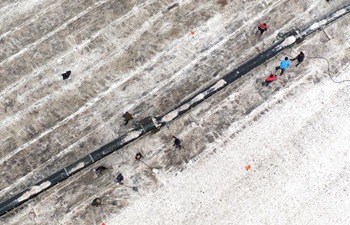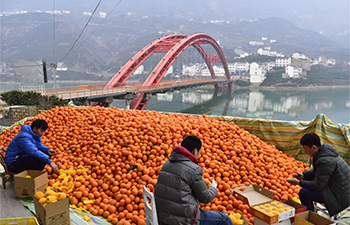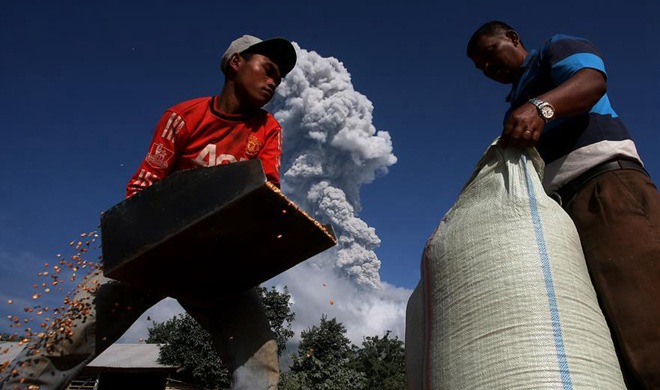NAKURU, Kenya, Jan. 18 (Xinhua) -- As tea tree increasingly becomes a popular crop to mitigate negative impacts of climate change among farmers in the arid and semi-arid (ASALs) parts of Kenya, experts have supported enhanced research and partnerships to ensure its benefits are felt.
Chryspin Afifu, managing director of Liquid Lever Kenya, a company supporting farmers to adapt to climate change through climate smart solutions, said through research, breeds suitable for varying climatic zones can be developed to benefit the larger community.
"Research is the only avenue to improve quality of tea tree, increase its production and expand its growing zones," Afifu told Xinhua on Thursday.
Currently, tea tree is mainly grown in selected Arid and Semi Arid Land (ASALs) in Central and Eastern Kenya thus helping maize growers to overcome poor declining yields linked to the harsh climatic conditions.
For 12 months running from October 2016 to October 2017, Kenyans exceeding two million were suffering in hunger due to prolonged drought and unexpected low rainfall affecting crop growth.
Also, destruction of many acres of maize plantations by armyworms further aggravated the situation as farmers couldn't salvage the crop due to lack of effective pesticides and information to tackle its spread.
However, expanding production of tea tree that proved to be a pest resistance crop would boost Kenya's food security, according to Afifu.
He said incorporating climate change reality into food security measures is inevitable as the impacts of extreme weather patterns continue to manifest in dismal crop harvests.
"Farmers can earn good income from tea tree hence giving them the much-needed purchasing power to afford alternative foods or invest into food crop production as well," he said.
Nancy Chege, Kenya's Country Program Manager at Global Environment Facility Small Grants Program of United Nations Development Program (GEF-UNDP), said tea tree enables farmers to mitigate and adapt to impacts of climate change since it is a drought tolerant crop that requires less management in terms of time, skills, water and soil management.
"Unlike maize, tea tree requires less water thereby saving the commodity for other uses including domestic uses," she said.
"A meaningful additional support from county governments is required to have a significant impact on production of tea tree (in Kenya)," she said in regard to expansion of tea tree farming in the East African nation.

















